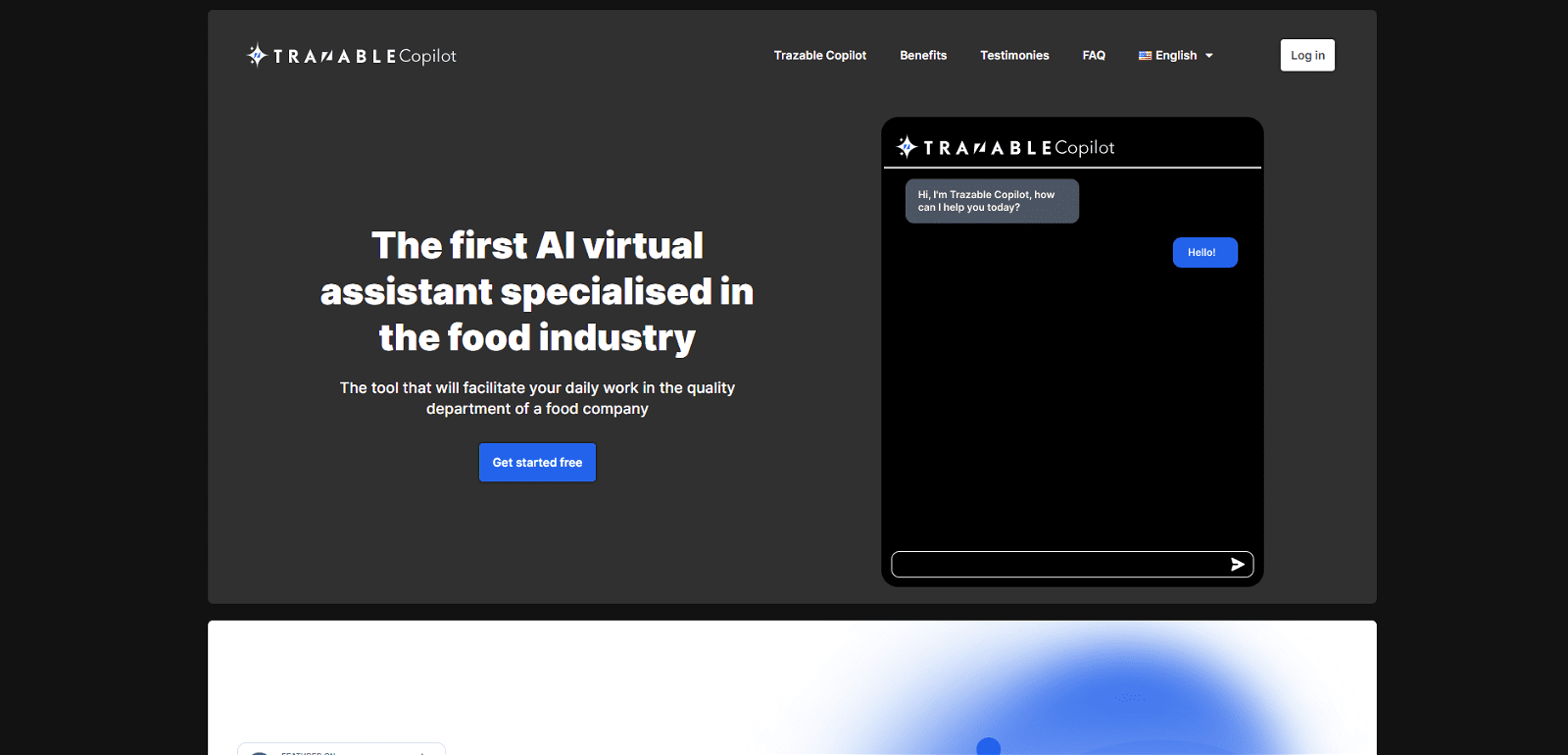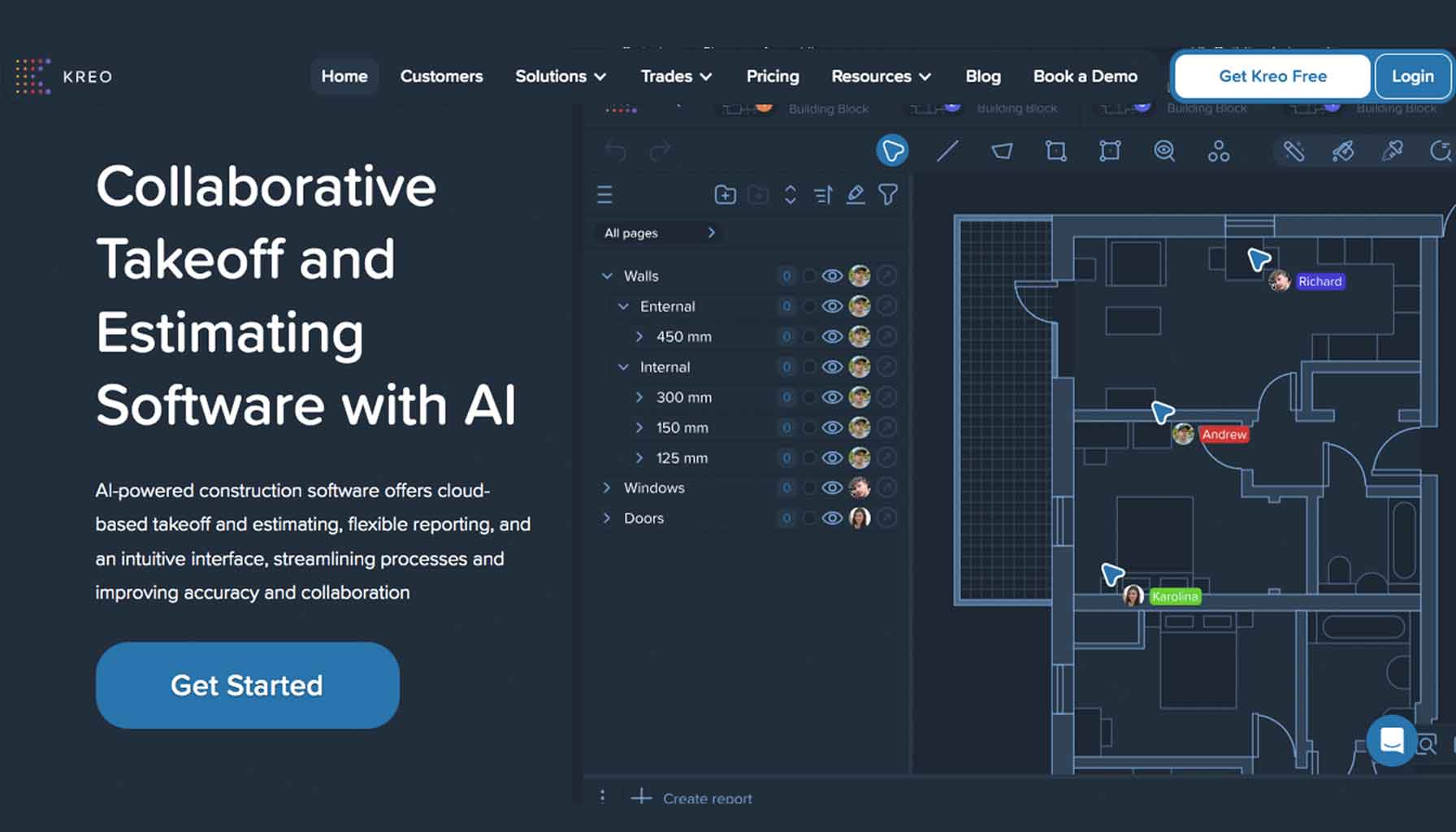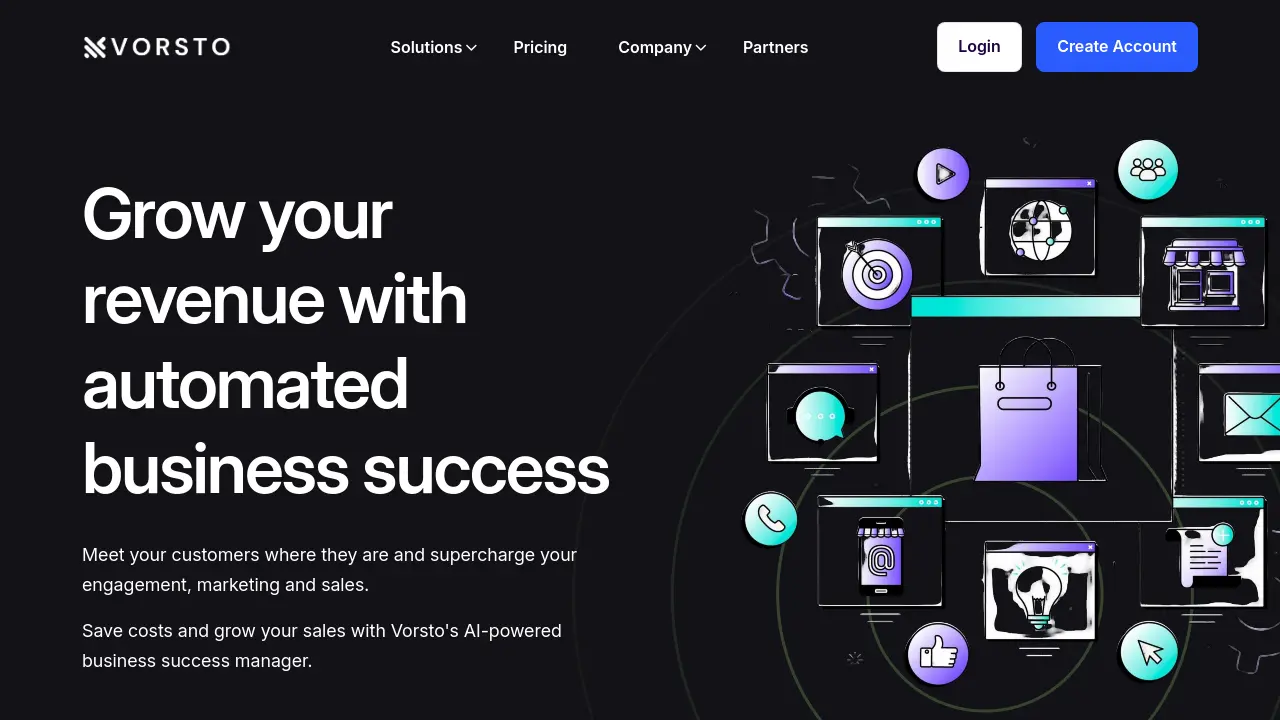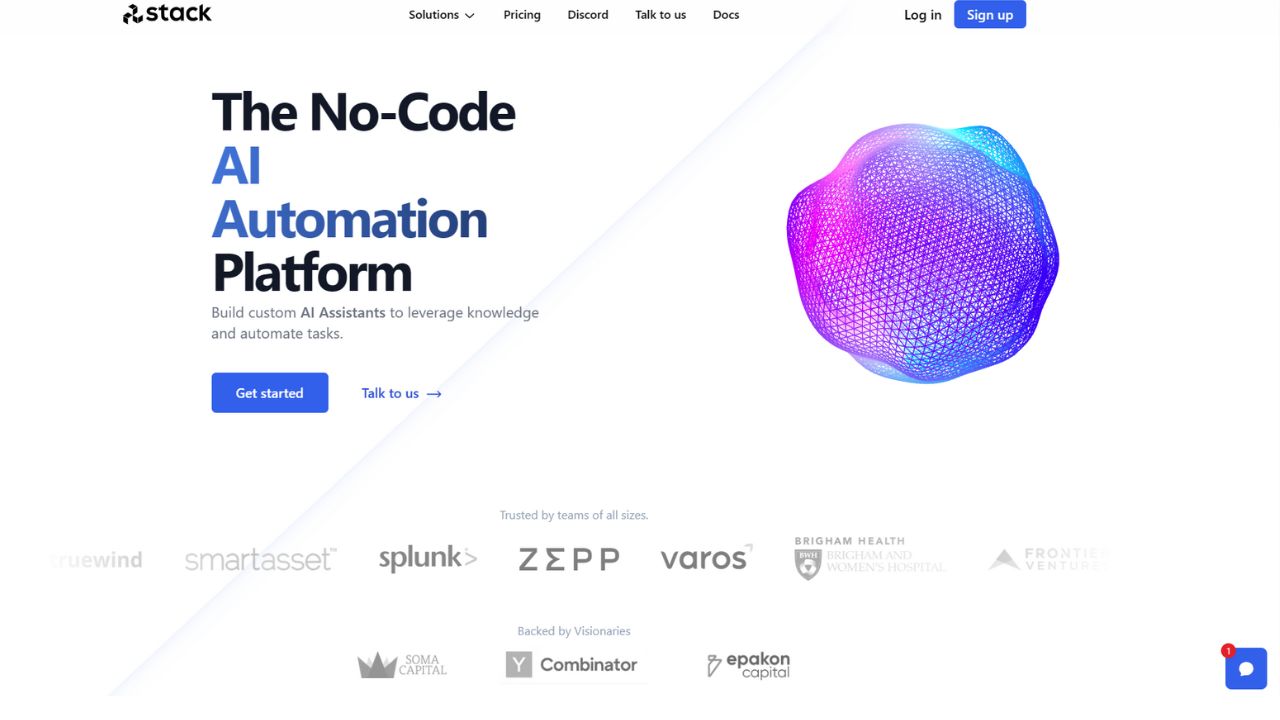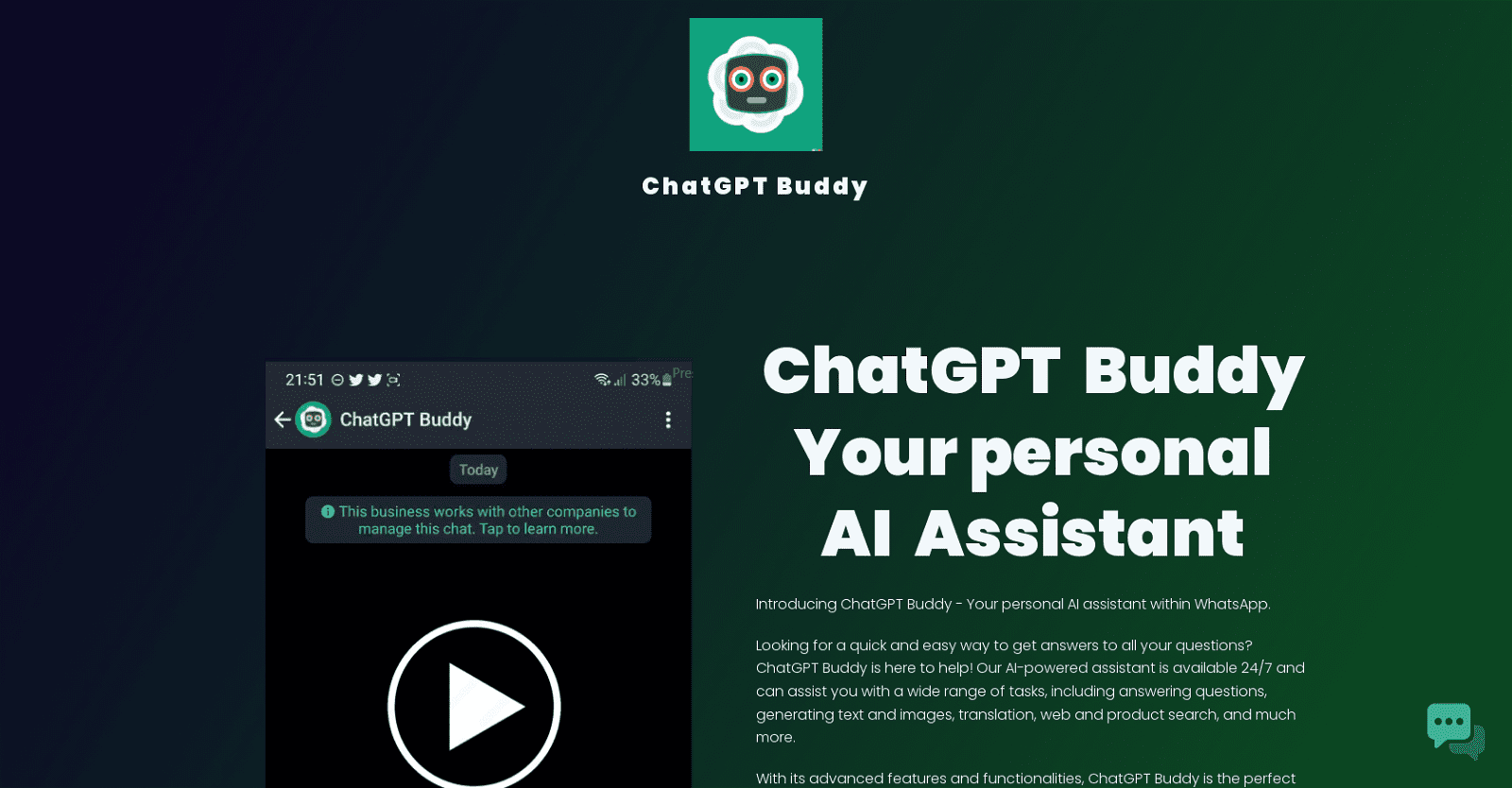Trazable Copilot is a virtual assistant powered by AI, tailored for the food sector. Its core function is to bolster the quality control processes within food companies.
Designed for optimal efficiency, Trazable Copilot streamlines daily tasks with its real-time communication capabilities.
It’s a tool crafted to meet the specific needs of the food industry, enhancing productivity significantly. This AI assistant stands at the crossroads of technology and food service, equipped with features uniquely suited for this niche.
With its intuitive interface, Trazable Copilot simplifies the integration of AI into business workflows. It represents a forward-thinking solution for quality management in the food industry through AI.
It’s important to recognize that the features of Trazable Copilot may adapt as AI technology and industry requirements evolve.
More details about Trazable
How does Trazable Copilot align with industry demands?
Trazable Copilot aligns with industry demands by providing a specialized AI-powered virtual assistant that caters specifically to the quality departments within the food industry. It offers real-time communication and accurate assistance, helping teams to comply effectively with food legislation requirements.
What is the main purpose of Trazable Copilot?
The main purpose of Trazable Copilot is to serve as a real-time communication tool that provides precise assistance to the quality departments within the food industry.
What makes Trazable Copilot a unique tool in the food industry?
Trazable Copilot unique in the food industry is its specialised focus on the quality department of food companies, and its ability to integrate AI functionality such as real-time communication to deliver precise and up-to-date information.
Can Trazable Copilot assist with quality control in food companies?
Yes, Trazable Copilot can indeed assist with quality control in food companies. It is designed as a real-time communication tool that provides accurate assistance to the quality departments of food companies. By resolving queries, offering guidance, and providing up-to-date regulatory information, it helps teams to effectively comply with food legislation requirements.
